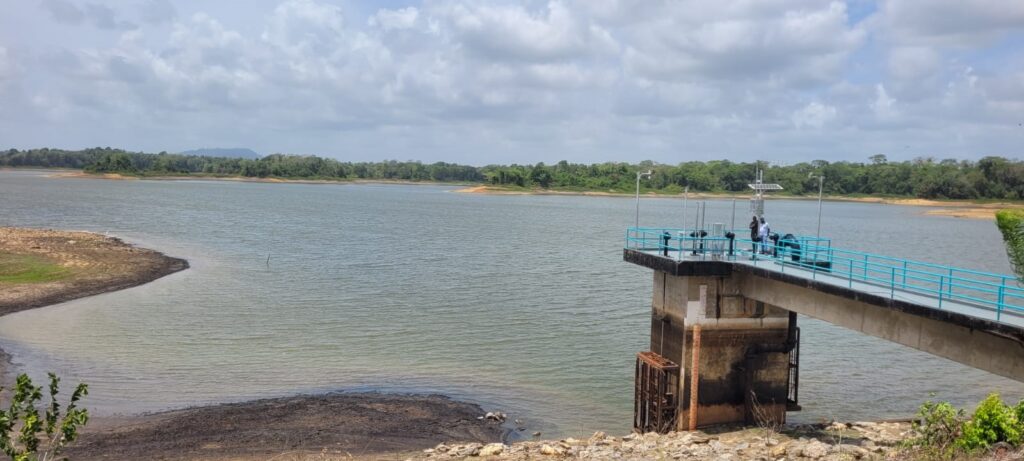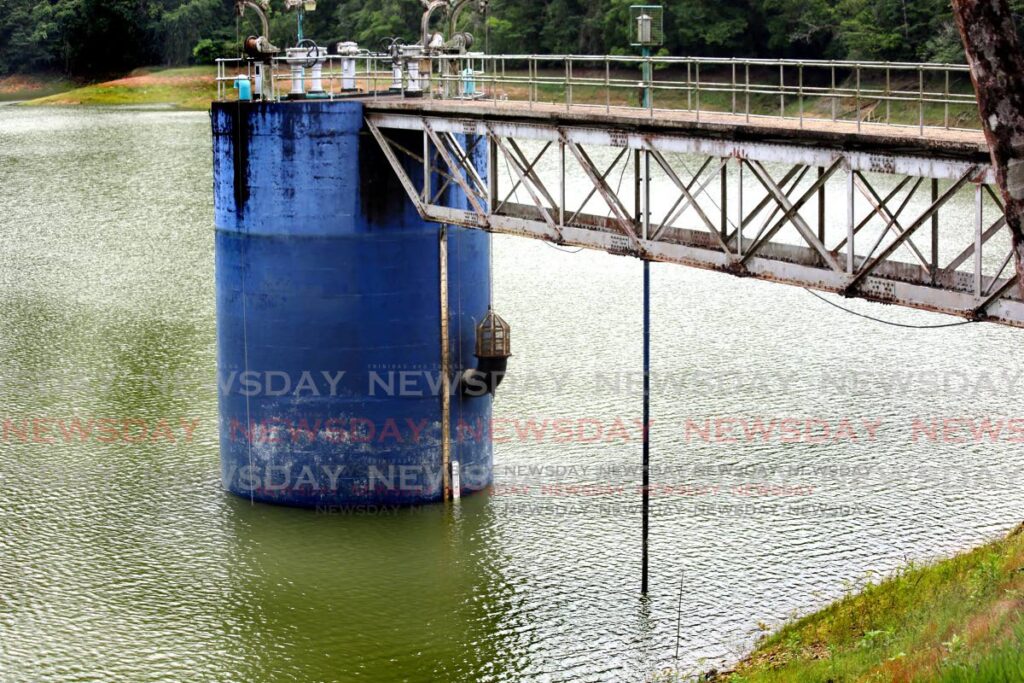Gonzales to investors: Act more urgently on water supply support

MINISTER of Public Utilities Marvin Gonzales has called on international lending partners such as the Andean Investment Bank (IDB), the Development Bank of Latin America (CAF) and the Caribbean Development Bank (CDB) and the World Bank to streamline their processes so that facilities for water supply projects could be accessed faster.
He said in the midst of climate change, which is rapidly depleting the region’s supply of water, all stakeholders, including the government and international lending partners have to operate with urgency to secure water supplies in the region.
“We need to act with urgency. I implore you, our international lending partners, CAF, IDB, CDB, and the World Bank, that they need to look at their processes to ensure that while we are prepared to partner with them that their internal processes reflect the urgency (of the situation) that we are in.
“We are in a crisis and that process is not responding as if we are in a crisis. While we are willing to continue to working with you – we are not asking for free money, we are going to pay it back – we are asking that you ensure that your processes are in a way that we can get access to the resources and put the necessary systems in place, so we can serve our population and prevent them from a major crisis knocking at our door.”
Gonzales was speaking at the opening ceremony of the Annual Caribbean Water and Wastewater Association conference and exhibition, at the Hyatt Regency, Port of Spain on October 21.
Gonzales described his experience in seeking financial support for the construction of WASA’s operational control centre, complaining that during the process, he had to go through 50 layers of approvals and still was only able to access $80 million for the project.
“I cannot understand for the life of me why at every stage you have to go to Washington to go to the next stage,” he said.
Gonzales said the government was able to increase the percentage of the population with access to a 24/7 supply water by 30 per cent, but extreme heat, one of the major effects of climate change, is undermining government’s efforts to provide a consistent supply of water for all.
“We had the northwest water improvement programme, the strategic action plan to improve the supply of water, the national transformation plan to improve the supply of water,” he said.
“Communities that are un-served and underserved are now getting access to a supply of water. In 2022 only 31 per cent of the population in TT had access to a 24-hour supply of water. Now because of those projects and those programmes that we have accessed over the years, today, 61 per cent of TT has access to 24/7 supply of water.”
“We have de-silted some of our reservoirs, we have constructed booster stations, we drilled wells to increase water production by over 3.2 million gallons of water. Then, something that we have absolutely no control over, climate change, came along.”

He said because of prolonged periods of extreme heat water reservoirs are drying up at a time when it should be at its highest capacity.
“The Hollis Reservoir is at 45 per cent of its capacity. It can only produce 4.5 million gallons of water on a daily basis. Last year, it was producing somewhere around 8 million gallons of water per day. It is now only producing at half its capacity.
“The Arena reservoir, TT’s largest reservoir, is at 42 per cent. At this time in previous years it was at 75 or 80 per cent.
“Every time there is extreme heat for two or three days, the Caroni water treatment plant which has the capacity to produce 75 million gallons of water per day, it drops by 10 million gallons of water.
“Navet, which is at 45 per cent capacity is supposed to be at 80 per cent”
Acting Prime Minister Stuart Young said that while TT has not been directly hit with a hurricane, the effects of climate change still affect the country.
“I can tell you that we here in TT are experiencing the impacts of changing climate, particularly increases in changing temperatures frequency and intensity of heat waves, frequency and intensity of heavy rain, flooding, drought and extreme dry spell condition, the frequency and severity of bush fires, the impact of Saharan dust and the frequency of tropical storm threats.”
Taking note of hurricanes Beryl and Helene, Young said the region is highly vulnerable to extreme weather events, but infrastructural problems have also affected the ability for TT to improve its water supply.
“It is a trite argument to insist that because we are an island state there should never be a challenge accessing a consistent water supply. Many of you here represent island states, for example where a significant part of your recurrent expenditure is the importation of water, therefore the management of the resource becomes a crucial endeavour,” he said.
“The truth is that even with the best of intentions, the aged pipeline infrastructure, similarly outdated management structures, little to non-existent use of modern technology and a culture bereft of individual accountability for water consumption, all contributed to making the monolith that is WASA. The challenges facing WASA was multi-faceted involving environmental, economic and social concerns and addressing them required a comprehensive approached that considered the unique characteristics of the local sector.”

Comments
"Gonzales to investors: Act more urgently on water supply support"